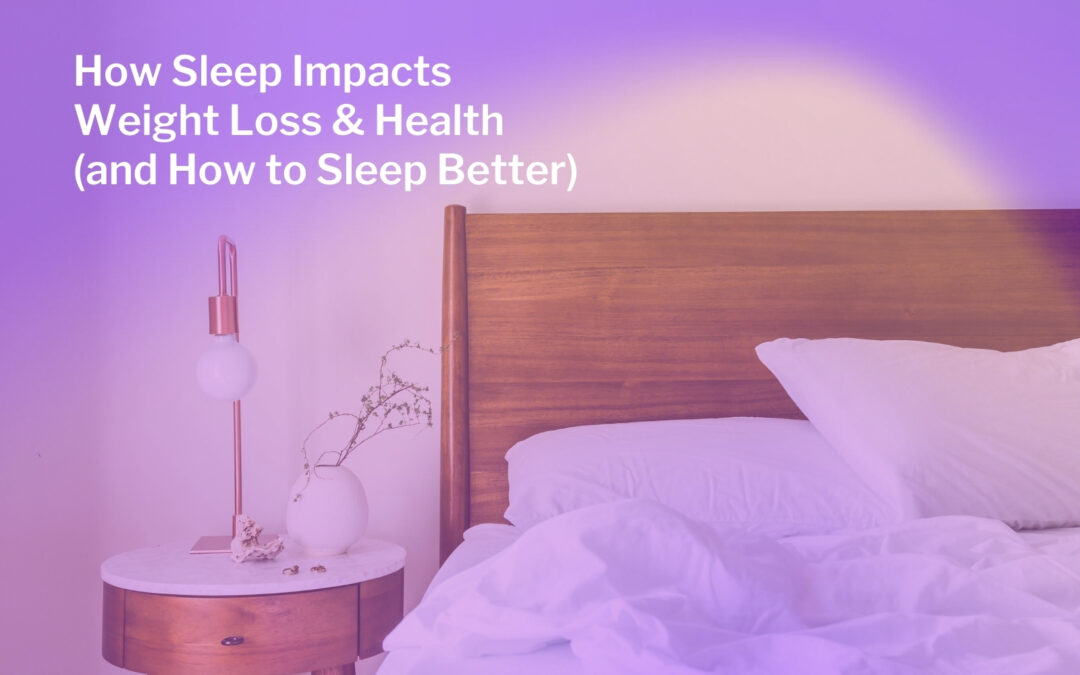Over the last few years, sleep has come to be recognized as just as important as diet and exercise in maintaining optimal health. Sleep problems are associated with weight gain, muscle loss, mental disorders like depression and anxiety, and increased risk of chronic conditions including heart disease and diabetes. Yet many people don’t realize how important it is to get enough sleep or how to improve their sleep if they have trouble sleeping already. We’ll look at what happens when you don’t sleep well, why it’s so important to get enough sleep, and how you can improve your sleep if you’re having trouble sleeping already.
What happens when you don’t sleep well?
Your anxiety levels are higher.
Making sure you get enough sleep is one of your best defenses against stress, anxiety, and depression. And if you don’t get enough shut-eye, your stress levels are likely much higher—and your ability to manage them much lower. Unfortunately, a lack of sleep also upsets hormones that help regulate hunger and satisfaction cues, so even if you’re not anxious about anything at all, it’s more likely that you’ll end up consuming more calories than usual.
You gain weight.
The quality of your sleep impacts more than just your energy level. Your weight also depends on it, as poor sleep has been linked to increased body fat and weight gain. A 2012 study found that people who reported sleeping fewer than six hours per night had a higher percentage of body fat than those who slept seven hours or more, even if they were at a healthy weight when they started out. That increase in body fat adds up over time and puts you at risk for other health problems like diabetes—and can make it harder to control your weight in general. While there are other steps you can take to support weight loss and health, sleep is always a great place to start.
Your mood is imbalanced.
Lack of sleep can actually affect your brain chemistry, leading to severe mood swings and even depression. In one study, researchers at Harvard Medical School found that sleep-deprived participants who performed a task in which they won money showed reduced activity in parts of their brains associated with pleasure and excitement when compared with well-rested subjects.
That’s why it seems like it’s impossible to have a positive attitude when you’re too tired—you literally can’t feel happy! Even if you don’t suffer from chronic insomnia, getting adequate rest each night is important for keeping your body running smoothly. It takes energy for muscles to maintain strength and health; without proper recovery time between workouts, muscles will weaken and fatigue easily.
You’re prone to diseases like heart disease and diabetes.
A lack of sleep can leave you vulnerable to many things, including chronic conditions. According to the CDC, sleep can have a profound impact on heart health, and a lack of sleep can raise blood pressure. When you sleep normally, your blood pressure goes down, but if you’re not getting quality rest, your blood pressure stays higher longer, which adds stress to the heart and body.
If the risk of heart disease wasn’t bad enough, poor sleep can also increase your risk of type 2 diabetes. Without adequate rest, blood sugar builds up in the body. However, adjusting your sleep habits can improve your body’s natural blood sugar control (and help limit cravings).
Your productivity is reduced.
Research suggests that poor sleep can cause your mind to work slower and make you feel sluggish during your waking hours. In addition, there’s evidence that poor sleep habits may contribute to excess belly fat and weight gain.
Researchers found that adults who slept 5 hours or less per night on average had significantly greater increases in body mass index (BMI) over a 6-year period than those who slept 7 hours per night, even when factors like diet and exercise were controlled for. On average, those who got less sleep increased their BMI by nearly 4 percent—equivalent to adding about 10 pounds of extra weight throughout the course of 1 year. Again, research suggests there’s a connection between short sleep duration and an increase in hunger and cravings.
How to Build Better sleep habits.
Getting a good night’s sleep can be challenging, but it’s critical for health, weight loss, muscle growth, and overall wellness. Here are several ways you can quickly improve your sleep habits and start getting better, higher-quality rest:
Go to bed at the same time every day.
Like it or not, a bedtime routine is important. It helps your body know it’s time for sleep and lets you wind down each day. If you stay up late one night, don’t try to catch up by sleeping in on another day. Even if you can fall asleep earlier than usual, changing your normal schedule can affect your hormones and stress levels—and your ability to sleep well at night.
Avoid screens 1 hour before bed.
It’s a good idea to avoid using your computer, smartphone, tablet, or other devices within an hour of hitting the hay. These gadgets emit a bright blue light that can interfere with your body’s production of melatonin—the hormone that helps regulate your sleep-wake cycle. Try switching off all electronics 1 hour before bedtime each night and seeing how you feel.
That means turn off that TV. Studies show that people who watch a lot of television, especially in bed, are more likely to be overweight than those who don’t. Plus, research from the Boston University School of Medicine suggests that watching TV right before bed can negatively impact sleep. Instead of watching TV or working in your bedroom at night—the bedroom should be reserved for sleeping and sex only—try meditating with some relaxing music or reading something less stimulating before you hit the hay.
Don’t watch TV or work in the bedroom.
It’s a common misconception that watching TV helps you relax and fall asleep. In fact, too much light (from TV or even laptop screens) tricks your brain into thinking it’s daytime, disrupting your body’s natural circadian rhythm. One of the best things you can do for better sleep is minimize or eliminate screen time within an hour of bedtime.
Avoid caffeine after lunch.
Caffeine is a sleep inhibitor, so try not to drink coffee or other caffeinated beverages after lunch. The caffeine molecule occupies the same receptor in our brains as adenosine—the chemical that builds up throughout the day to make us feel sleepy and prepare us for nighttime rest. Since caffeine blocks adenosine, it can keep us from feeling sleepy for hours after we take it. To avoid any sleep interference, it’s best to avoid caffeine after lunch, especially if you’re sensitive to its effects.
Remember: Making Small Changes Can Have Big Impact
If your sleep hygiene hasn’t been the best, you’re not alone. Most Americans don’t get enough sleep and often suffer consequences. If you’ve been feeling the impact of poor sleep on your attention, mood, or waistline, making the changes listed here can have a huge impact on your weight loss progress and overall wellbeing.
Any lifestyle change can feel overwhelming. If you’re looking to improve your sleep, make changes slowly so that you build good habits instead of temporary adjustments. Take the time to find what works for you, your schedule, your life, and your body.

